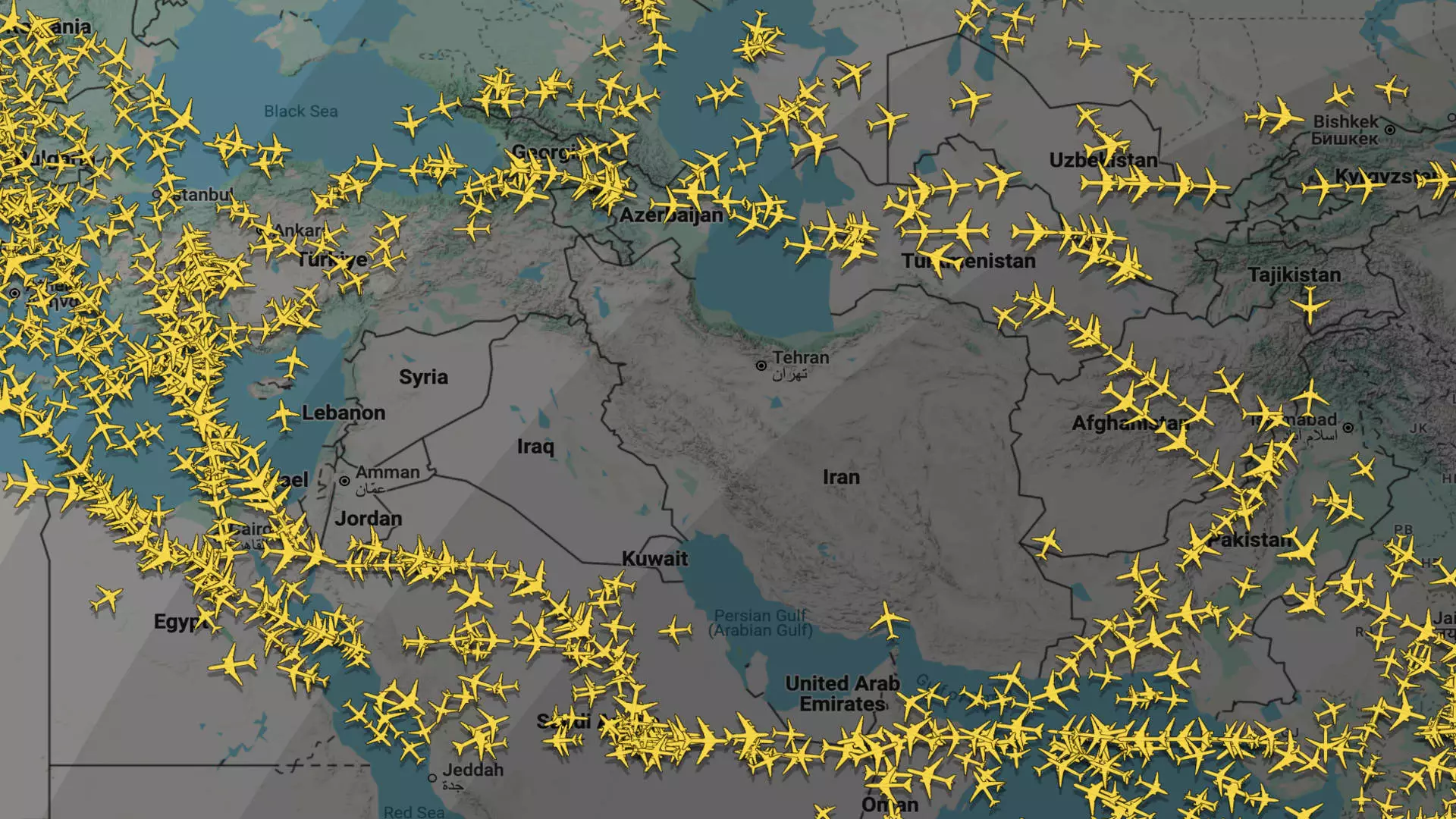The commercial aviation industry is no stranger to turbulence, both literally and figuratively. The recent geopolitical unrest in the Middle East has brought about unprecedented challenges for airlines operating in and around the region. With Iran’s military forces ramping up their aggression, including a missile strike on a U.S. military base in Qatar, the implications for air travel cannot be overstated. Airlines have been forced to navigate a complex web of rapidly changing airspace restrictions and heightened security concerns, leading to mass diversions and cancellations of flights, particularly into Doha and Dubai. This is not just a logistical headache; it represents a significant financial and operational setback.
Flight Diversions: A Chain Reaction
On a typical day, one would expect the skies above the bustling hubs of Doha and Dubai to be filled with commercial flights from all corners of the globe. However, the recent events have caused a severe disruption, with more than 20 flights destined for Doha rerouted, alongside additional flights diverted from Dubai. This domino effect highlights a key issue: the overarching fragility of international aviation in times of conflict. The temporary closure of airspace over the United Arab Emirates and Bahrain serves as a stark reminder that aviation policy is intrinsically linked to geopolitical stability.
Airlines like Emirates have publicly acknowledged the unpredictability of the current situation, urging passengers to remain flexible as they attempt to operate their schedules while avoiding conflict zones. Yet, one cannot help but question whether the movement of people and goods has been adequately prioritized against the ever-escalating tensions in the region. With Air India suspending all flights in and out, travelers find themselves caught in a web of uncertainty, dictated not by airlines but by international diplomacy and military posturing.
The Financial Fallout
For the airlines affected by these developments, the fallout is not merely operational; it’s profoundly financial. The Middle Eastern market has always been a lucrative one, serving as a hub for transcontinental travel. Now, with airspace restrictions in place, airlines must take longer, more circuitous routes that not only waste valuable resources but also inflate operational costs. The longer flight routes require additional fuel, which increases the overall expenses and risks pushing ticket prices higher, thus potentially alienating customers who might seek more affordable alternatives.
In light of these financial strains, it’s crucial for stakeholders to evaluate whether the current structures and protocols in place are adequate for ensuring the safety and efficiency of air travel in conflict-prone areas. The loud silence from governments and regulatory bodies during these crises raises questions about their commitment to protecting the aviation sector, a crucial component of global interconnectedness.
Consumer Trust on the Line
As uncertainty pervades the skies, consumer trust hangs precariously in the balance. Major international airlines, including British Airways and others, are stepping back from their scheduled flights under the pretext of safety—a valid concern, of course. However, with this uptick in cancellations, airlines risk losing the loyalty of frequent travelers who may see this as evidence of volatility in service reliability. Travelers today are more than mere passengers; they are consumers who have the right to transparency and stability in a crucial service.
The proactive approach taken by several airlines to communicate with their customers amidst the chaos is commendable. However, one has to wonder: is it enough? Customers are increasingly demanding accountability and transparency, especially in light of travel disruptions that extend beyond the airlines’ operational control. If carriers continue to evade addressing the core issues related to airspace safety, public resentment may rise, leading to long-term consequences in terms of brand loyalty and reputation.
Looking Forward: A Daring Balancing Act
The current turbulence in the Middle East serves as a litmus test for the airline industry. Can major carriers balance the need for operational safety with the demands of time-conscious travelers? The answer remains unclear, yet one thing is certain: as geopolitical climates continue to shift, the world of aviation must adapt alongside it. It will require not just innovative operational strategies, but also a concerted effort from governments and international organizations to establish frameworks that both ensure safety and promote the continuity of essential services like air travel. This is a monumental challenge, and one that will require both courage and creativity in equal measure.


Leave a Reply